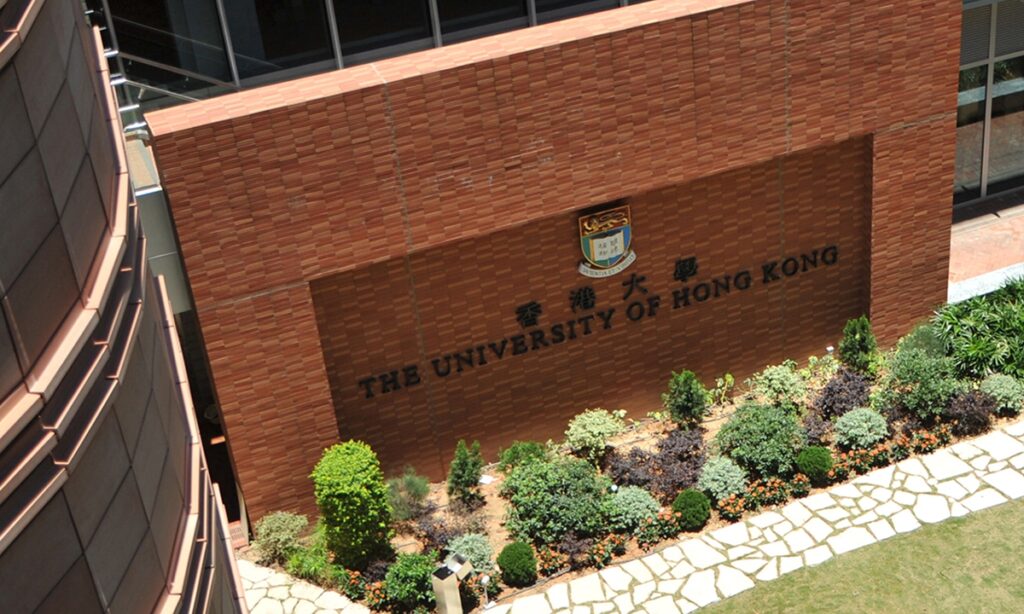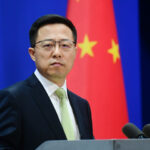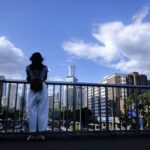The Hong Kong Police Force (HKPF) on Wednesday arrested four members of the students’ union of the University of Hong Kong (HKU) for allegedly advocating terrorism in their public mourning of a police attacker. Experts noted the arrest shows further rectification in the city’s education sector, as Hong Kong’s universities are no longer asylums for outlawed behavior.
The police said in a news conference on Wednesday that the arrests were made after the HKU students’ union council on July 7 passed a motion to pay tribute to Leung Kin-fai, who killed himself after stabbing a police officer. The four are suspected of violating the national security law for Hong Kong Special Administrative Region (HKSAR).
The arrests are the result of an in-depth investigation by the National Security Division of the HKPF, and all those arrested are being held for investigation. Police operations are ongoing and more arrests cannot be ruled out, the HKPF said in a statement sent to the Global Times.
During a students’ union meeting, the attendees observed a moment of silence for the attacker and had glorified and defended the attacker’s actions, referring to him as a “martyr,” according to the police.
Steve Li Kwai-wah, senior superintendent of the national security department, said at the news conference that the content of the students’ union meeting was posted on social media. He said the motion involved praising and glorifying actions of terrorism, prompting the police to step in.
Chief Secretary John Lee Ka-chiu stressed on Wednesday that any person or organization that violates the laws of Hong Kong must be dealt with.
“Each person must be responsible for his or her actions, and anyone who does anything must think twice from a legal perspective before doing so,” he said.
Local media reported that the four include former students’ union president Kwok Wing-ho, chairman of the students’ union’s council Kinson Cheung King-sang, and former vice-president of the arts students’ council Anthony Yung Chung-hei.
Li said the four, aged between 18 and 20, had spoken during the meeting, and the students used their social media accounts to promote the motion to the public after the meeting.
The union apologized and retracted the motion after it drew fire from the university, the government and different public sectors. Three executives and 11 council members of the students’ union resigned after the incident.
Carrie Lam, Chief Executive of HKSAR, condemned the council’s inappropriate behavior, saying she was “angry and ashamed.” The HKU also cut ties with the students’ union on July 13, ordering them to evacuate within a week.
Experts pointed out that a series of recent events in Hong Kong’s education sector reflect a change of course, including the dissolution of the Hong Kong Professional Teachers’ Union, the dissolution of relations between a number of universities and their student unions, and the strengthening of national security education in many secondary schools.
The arrest has once again sent the message that everyone is equal before the law and that schools do not shelter extreme lawbreaking behavior, Tang Fei, a member of the Chinese Association of Hong Kong and Macao Studies, told the Global Times on Wednesday.
“While universities are not direct hotbeds of terrorism or secessionism, there has been a tradition of high respect for student autonomy in Hong Kong’s universities, leading some students to abuse this tolerance and engage in suspected illegal activities for a long time,” Tang said.
The arrest of the four HKU student leaders is yet another example that, in the post-national security law era, students who engage in illegal behavior can no longer use “academics” as disguise, Tang noted. “It is an overhaul of Hong Kong’s education sector.”
Observers have also pointed out that although progress has been made in the education sector in Hong Kong, there is still a long way to go. In addition to the use of legal measures to regulate the offenders, it is more important to use a positive attitude to promote education, especially patriotic education.
The University of Hong Kong Photo: hku.hk




